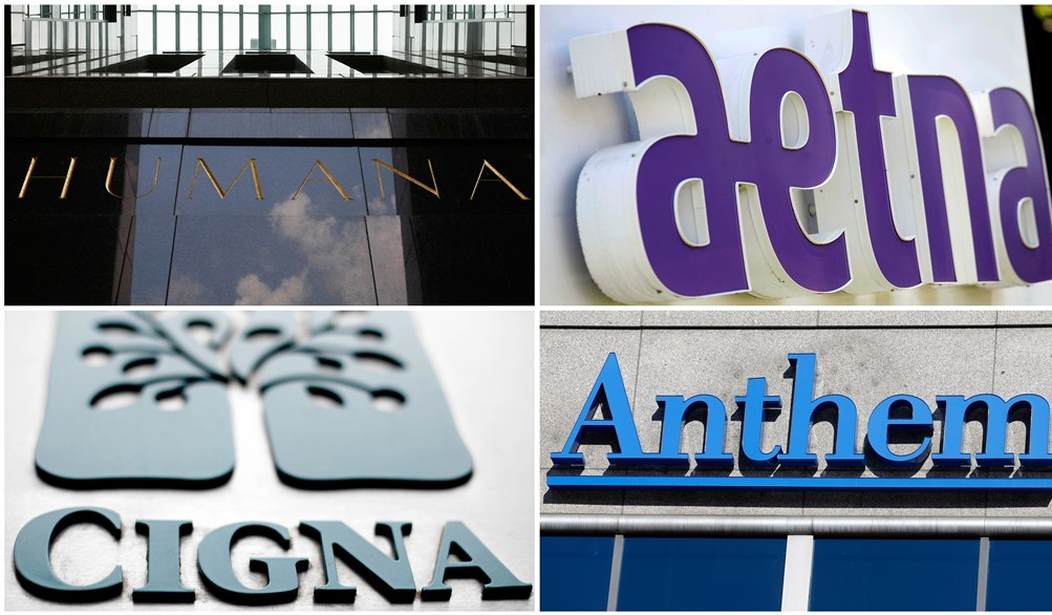Has the uncertainty over the fate of ObamaCare accelerated the instability of insurer markets — or is that fully attributable to ObamaCare itself? Insurance consumers in Idaho might not care whether the chicken or the egg came first. They’re going to be more concerned that premiums will cost them an arm and a leg, thanks to massive rate hikes as high as 81% for next year’s plans:
The five insurers serving the individual market in Idaho are Blue Cross of Idaho Health Service, Mountain Health Co-Op, PacificSource Health Plans, Regence BlueShield of Idaho, and SelectHealth.
For all plans, insurers requested rates ranging from a low of 25 percent to a high of 51 percent for a combined average statewide rate increase of 38 percent. For Obamacare’s popular Silver plan, the average rate increase among all insurers was even higher at 50 percent, with one insurer requesting a high of 81 percent.
“I am deeply disappointed and frustrated to share these rates,” said Dean Cameron, who directs the department. “I understand how difficult it will be for Idahoans to afford reasonable coverage, especially those without a subsidy.”
By the way, Cameron’s equally unimpressed with the philosophical debate. Cameron wants either a repeal passed by Congress, or funding restored to supplement insurer risk in order to push premiums down … or at least keep them from rising as high. The latter approach would trigger an ocean of red ink, an uncontrolled bailout that stiffs taxpayers while helping insurers hide just how badly the Affordable Care Act mangled the individual insurance markets.
How dead is the repeal-and-replace effort, then? Perhaps it’s only mostly dead after all, as Rep. Andy Barr (R-KY) insists. The problems of the collapsing markets have to get addressed ASAP, Barr told the Lexington Forum today, and he’d like to see a bipartisan effort to replace the ACA with something that works. Er … good luck with that:
Members of Congress might be shifting their focus to tax reform after the Senate failed to repeal and replace the Affordable Care Act, but U.S. Rep. Andy Barr, R-Lexington, hasn’t given up hope on health care yet.
“This is a rescue mission,” Barr said Thursday morning at the Lexington Forum. “And we’ve got to be persistent on health care because, let’s face it, despite the Senate’s failings last week, the problem is not going away.” …
“We want a bipartisan solution, we want them to send something back, we want to work,” Barr said the University of Kentucky’s Boone Center. “But I am not a yes until it solves the problems.”
Barr says there are several problems with the Affordable Care Act, and that any new bill he voted for would have to lower cost, increase choices, include pre-existing conditions, repeal the employer and individual mandates, and repeal the taxes associated with the bill.
All true, but that was also all true last week, last month, and for the last four years. On top of that, Barr wants a rollback of the Medicaid expansion, which he notes (correctly) as “one of the drivers of the debt.” However, what Barr’s describing is the full ObamaCare repeal that Democrats have opposed all along in lockstep, and which didn’t even get to 50 votes in a Senate with 52 Republicans. What’s more, Senate Republicans aren’t in any mood to rehash that fight:
Senate Republicans have no plans to revive their party-line attempts to repeal Obamacare this summer, despite President Donald Trump’s increasing frustration over the chamber’s failed attempts last week to gut the law.
“Until somebody shows us a way to get that elusive 50th vote, I think it’s over,” said Sen. John Thune of South Dakota, the third-ranking Republican. “Maybe lightning will strike and something will come together but I’m not holding my breath.”
Idaho consumers — and taxpayers footing the bill for escalating premium subsidies — are left holding the bag. Get ready for at least one more massive premium increase, not from deliberate sabotage but from the same contradictions that have always existed within ObamaCare. No one in Washington has any incentive to step in and stop the inevitable collapse before it happens. Speaking of incentives, this earnings report from Aetna shows why the collapse will come sooner than later:
Aetna Inc reported a higher-than-expected quarterly profit on Thursday as member health costs were lower than anticipated and it benefited from exiting most of its Obamacare individual insurance markets this year.
Shares of Aetna gained 1.6 percent to $157.18, helped by stronger results not only for individual insurance but also in its small and large business division and in its government-backed Medicaid and Medicare segments. The company raised its full-year earnings outlook.
While the individual business’ financial results improved more than expected, Aetna said it still anticipated losing money on the Obamacare markets this year. The company has already shrunk that business to 240,000 members from 1 million last year and will completely exit it at the end of 2017.
If all the insurers follow Aetna’s lead, it might produce enough political incentive toward action. Don’t count on it before that happens.







Join the conversation as a VIP Member